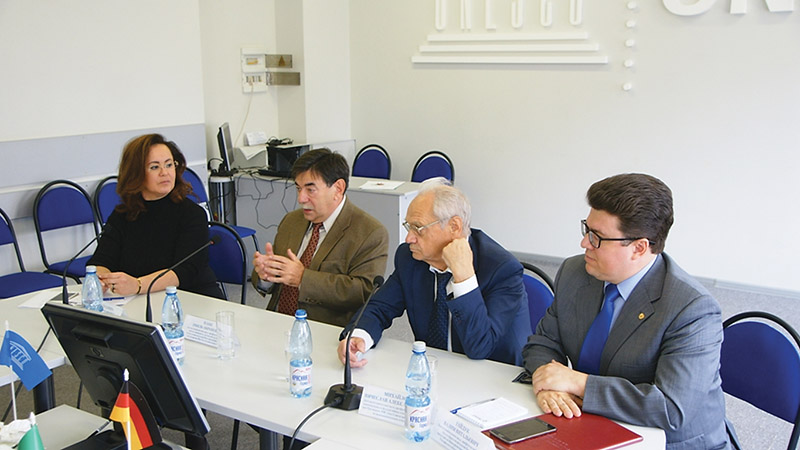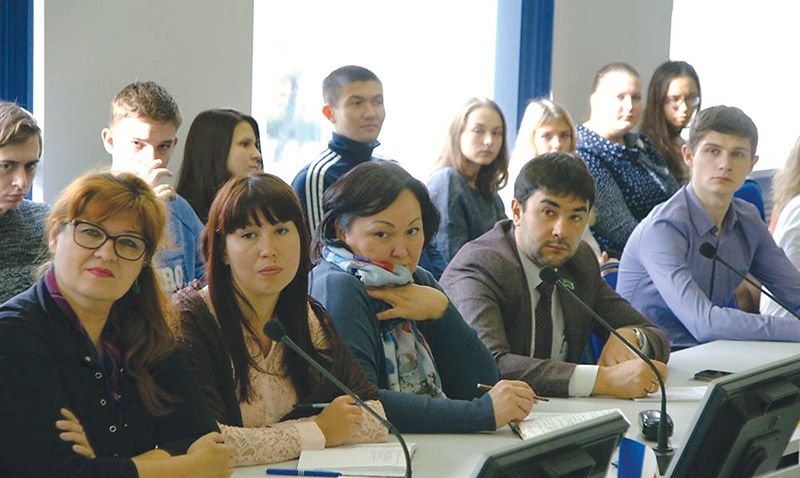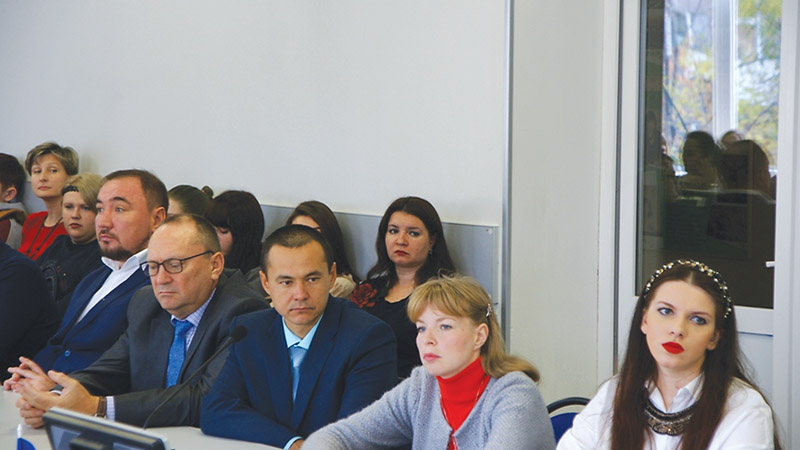
A meeting of the scientific community took place in the framework of the UNESCO-UNEVOC Centre in the Russian Federation on the basis of the Bashkir Institute of Social Technologies in October 7, 2016.
Teachers and students met with Vyacheslav Mikhailov, doctor of historical sciences, professor, head of the Department of National and Federative Relations of the Russian Academy of National economy and government service under the President of the Russian Federation, member of the Presidential Council of the Russian Federation in international relations, and Emil Pain, doctor of political Sciences, professor, head of the Center for the study of xenophobia and prevention of extremism of the Institute of sociology of the Russian Academy of Sciences, professor of public and municipal service Faculty of social Sciences of the State University — Higher school of Economics.
The purpose of the arrival of two known in our country and abroad, scientists was project «New approaches and methods of regulation of ethno-political (ethnic and religious) relations on the territory of the largest metropolitan areas of Russia: an interdisciplinary analysis of the problems and improve the methodological bases of the national policy».
Selection of issues and technologies of the project due to the fact that if in the 1990s the main problems of interethnic relations in Russia were associated with ethnic mobilization groups, the so-called «titular nationalities» in the Russian Federation republics, during the process «hits sovereignties», in the beginning of the XXI century the sharpness of “vertical” conflicts over sovereignty between the republics and the federal center had weakened, and «horizontal», intergroup conflicts in the cities began to show noticeable, primarily due to the unprecedented influx of migrants in Russian cities. Geographical and substantial characteristics of ethno-political problems changed (contradictions, which are often referred to as inter-ethnic or inter-religious conflicts of migrants’ interest and the host community in the territory of the largest cities and agglomerations of the country became important). However, the understanding of the specifics of the «urban», «horizontal» conflicts and development of new approaches to solving them are not found yet and this research project aims at a comprehensive analysis of the problem. Also, it is focused on its methodological solution through the development of new approaches and methods of regulation of ethno-political relations in the urban setting.
As the object of study among 4 Russian cities (Moscow, Rostov-on-Don, Perm and Ufa), the capital of Bashkortostan is chosen because 160 nationalities live here and at the same time the situation in the sphere of international relations remained fairly stable.
The round table was held in the questions — answers format. The questions were very different, sometimes controversial. The participants asked — visitors and visitors asked participants. Time passed quickly, but on the sidelines the discussion continued after the departure of guests.
As a result of staying Vyacheslav Mikhaylov and Emil Pain agreement between the Russian Academy of National Economy and Public Administration under the President of Russian Federation and the Bashkir Institute of Social Technologies was signed, according to it we will conduct a comprehensive socio-political research in the field of international relations.




 October 8th, 2016
October 8th, 2016  ALINA B.
ALINA B.  Posted in
Posted in